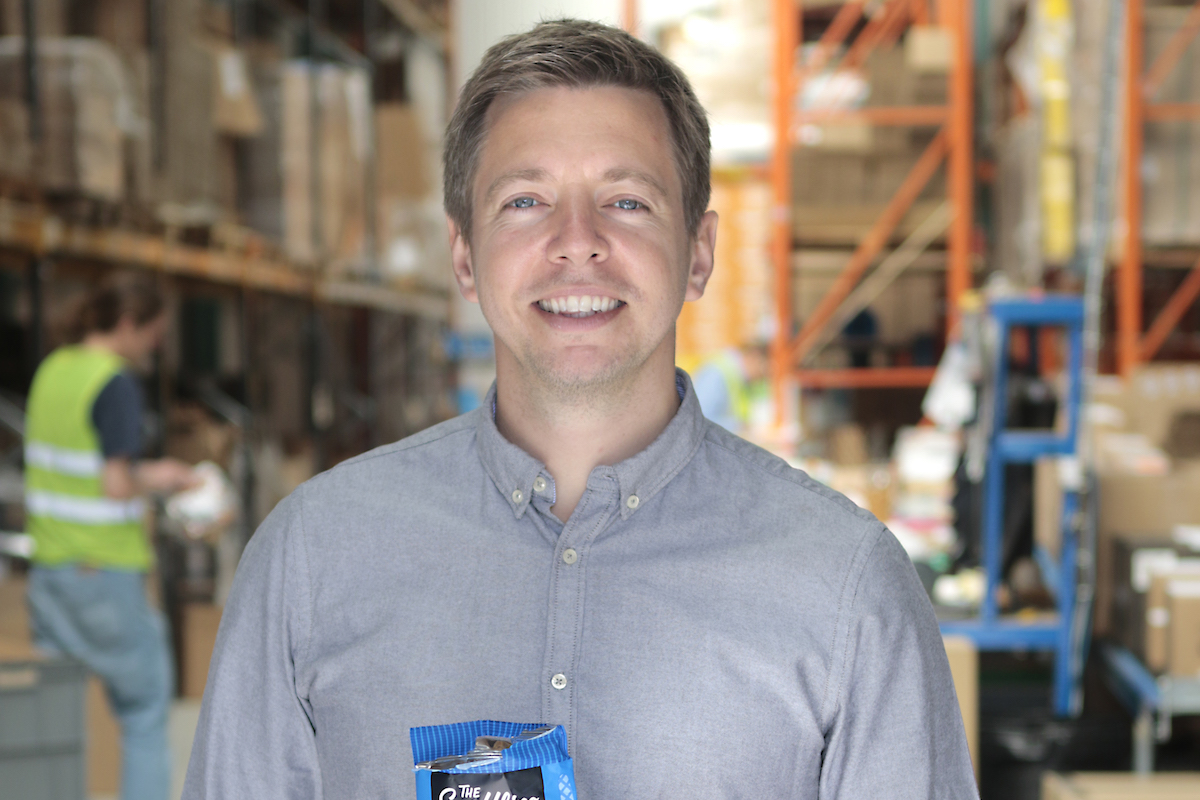Sales & Growth
Article
Are you thinking about your direct-to-consumer relationships enough?

With retailers, pubs, restaurants and other important sales channels forced into closure, businesses around the UK are having to pay more attention to direct-to-consumer sales.
Consumer brands, particularly in the food and drink space, have felt the bite of coronavirus particularly hard. Years of hard work in becoming part of the supply chains at major retailers and pub and restaurant groups has been rendered useless at this time.
However, it’s not just food and drink brands which are going to feel the pinch. The widely publicised struggles of high street department stores and razor thing margins found on platforms such as Amazon mean all brands need to spend more time developing a more robust direct-to-consumer sales route.
Creative response
At Snaffling Pig, a five year-old business producing pork scratching and other similar products, founders Nick Coleman and Udhi Silva have decided to take matters into their own hands. When sales dropped by 80 per cent because of pub closures and supermarket spending habits changing, the duo looked at the situation as a prime opportunity to forge closer relationships with their end consumers.
The result is an entirely new organisation, called Startup Logistics, which will operate as a direct-to-consumer (D2C) storage, picking, packing and delivery business specialising in food and drink. It started with a message Nick sent out on LinkedIn as part of trying to reduce overheads at Snaffling Pig. Why not use the extra warehouse space they had to ship the goods of other brands, they thought.
Fast-forward and demand has led to the leasing of a new 5,000 sq ft warehouse and a roster of 12 food brands. “The difference with us is we’re what you might call a ‘poacher turned game keeper’. We are a food brand ourselves, so know what it is like. We know food brands want flexibility, to evolve quickly and try different things,” Nick explained.
“Logistics firms are fixated on shifting boxes. We’re about building relationships with consumers right now and can offer a service brands can’t get elsewhere – like including a personal compliment slip. Our team are also on WhatsApp texting brand owners about specific orders and sharing videos of their stock on site.”
Nicks and Udhi have spent years building real relationships directly with their customers, knowing that this was important to long-term success. They’re now opening up the system for delivering that to other brands, which might even have been considered competitors before.
“Direct-to-consumer has been going on for a while, but it’s about to get much bigger. When people visit supermarkets now they are trying to get in and out as fast as they can. When shopping online, you don’t browse. You go to your favourites or the most popular items.”
These trends mean it will become ever harder for new brands or products to catch the attention of shoppers, who are consuming in a head down get the job done kind of way. Creative use of social media and other promotional methods will be crucial to build early engagement and interest. Then brands will need to have a slick shopping and distribution system that lets consumers get their hands on products as easily as they would by shopping at Sainsbury’s or ordering from John Lewis.
Direct-to-consumer surge
Beer brand Beavertown has experienced a huge surge in demand during the coronavirus lockdown period, despite 85 per cent of its sales, that from pubs, bars and restaurants, disappearing overnight. Its website had been doing £1,000 of sales in a “good month” but that has now skyrocketed by 1,000 per cent to £25,000 a day at one point. Speaking to The Drum, founder Logan Plant said the business increased the number of staff working online from two to eight and changed production so only cans were being produced.
“The way we see it, Beavertown is more than just a beer. So if we can keep customers stimulated and interested and take them on that journey with us – as much as it’s a negative we can make a positive out of that situation. I wouldn’t say our marketing has changed radically, but it’s given us more of an insight into what we should be doing really.”
That’s a sentiment echoed by Nick and Udhi. Their efforts to build Snaffling Pig during the last five years have involved a lot of brand building, getting customers interested in the company’s reason for being, attitude, unique culture and future product development.
“There are lots of businesses which won’t exist in 2-3 months as they won’t have evolved,” Nick believes. “If they don’t think the world is about to be very different then their business will die. Your consumer base will not be shopping in the same way as before so you have to think in an innovative way.”
Distribution systems, which bring together picking, packing and delivery in a way that abides by social distancing rules, is no simple matter. But that is where entrepreneurs like Nick and Udhi are stepping in. They are part of a growing number of smaller business leaders who realise the benefit of strength in numbers. By pooling resources, expertise and exposure to risk, these kind of businesses can not only protect and build future revenue lines but take on the bigger players as well.